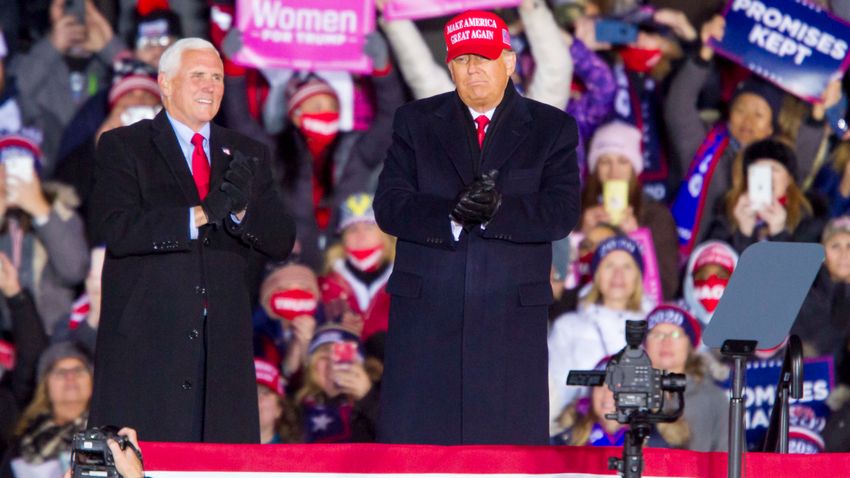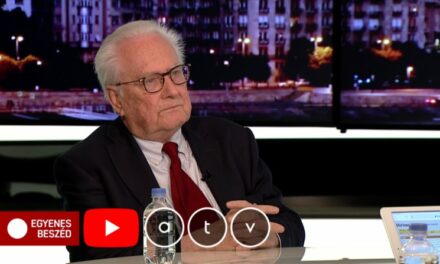The question of party financing, as well as the more favorable or unfavorable position of one or the other political side, regularly comes up in public discourse, so it is not uninteresting to review the relevant American situation. Of a country where - perhaps not by chance - we can find the starting points of the significant majority of the relevant criticisms affecting our country.
Money and politics - even in a seemingly exaggerated way - are closely related in America, and looking at the financial background of election campaigns, it can be clear to everyone that candidates aiming for the presidency or other high political offices are spending more and more, record-breaking amounts of money from election to election. for their own electoral struggle.
The total cost of the most recent presidential election cycle in 2020 was estimated to be almost $14 billion, and with this magnitude, American election costs are almost incomparable to those of other countries.
However, there was a significant difference between the financial possibilities of the two final candidates: by October 2020, in the last campaign period before the presidential election, the Trump campaign's $63 million budget seemed dwarfed by Biden's $177 million.
In the numbers of the campaign fund collected by the candidates of the last two presidential elections, we can see that in 2016 it was 586 million dollars for Hillary Clinton, while it was "only" 351 million dollars for the eventual winner Donald Trump; In 2020, Trump was able to collect 601 million dollars, while the winning former vice president, Joe Biden, was able to collect 952 million dollars.
Of course, Trump, who has strikingly different views compared to the agenda of the political elite, could not count on as much financial support as if he had started with a traditional Republican background. This is partially shown by the fact that the expenses of the parties and external advocacy groups supporting the presidential campaign candidates totaled 2.8 billion dollars in 2008, while in 2016 this value decreased to 2.4 billion dollars - at least according to the Center for Responsive Politics in Washington. , according to data from the research group that monitors political funding.
From this we can guess that behind Trump's candidacy - also in the light of the poll numbers - the economic hinterland of a size similar to that of his opponent did not want to move on his side.
The astonishing volume of numbers perfectly demonstrates the truth of the old political adage, which was formulated by Jesse M. Unruh, then Speaker of the California State Assembly, in 1966, and which best characterizes the working mechanisms of America's political system: according to this, money overseas is "politics corresponds to his mother's milk.
The same democratic politician - who was also the finance minister of the state of California for twelve years from 1975 - considered shrewdness and ability to be very important in political office and campaigns.
About lobbyists, for example, he said: "If you can't eat their food, drink their booze, screw their women's heads, and then vote against them, then you don't have much business here." The foundations for this do not necessarily have to be acquired in the public administration or in the legislature, as the case of Trump shows, although the traditional path leading to presidential, gubernatorial or even senatorial power, i.e. to a successful campaign, required a similar habitus and attitude.
This kind of ability - which is rather only hinted at by Unruh's words - is essential for the campaign, as well as for ensuring the appropriate amount of campaign funds. Past presidential election campaigns have shown that if someone campaigns with more money, he is not cheating, but just smarter and more capable, and thus has a better chance of winning.
Money is everything and yet not everything; according to political marketing, careful preparation is also required, i.e. the candidate's team must develop a financial concept for the election campaign in good time, and must also prepare an accurate cost plan.
Today, there is no election campaign without donations, but as much as possible, their channeling should be organized. For example, in Barack Obama's 2008 campaign, the Obama staff used online networks to raise money, which was really decisive in the American financing system, with the bold move that they did not ask for the maximum of $2,300 per donor, but rather - with amounts under one hundred dollars - they provided the possibility of multiple donations. on the basis of "a lot of little goes a long way", which was obviously only one, but undoubtedly very important aspect of the financial background for the Obamas.
There is no patented recipe for a successful election campaign, because it is often about innovations, and ultimately this can lead to success. It is possible, and even highly recommended, to question previous methods and even discard the correctness of one's own older strategies, and to think again and again about where and how changes can be made, and whether this or that change can still fit in, considering the time of the campaign.
There can be surprises in an effective campaign, and here and there there can really (and effectively) be a norm-breaker. Many times, the charisma of the presidential candidate, his skillful political instincts, improvisations and his excellent verbal and oratorical skills can also help in success (for example in the case of Obama or Ronald Reagan), but as we see with the left-wing Democrats, it is not a problem if we spend two or three times more than the opponent for the campaign.
The American can be a good example for the Hungarian left and those who support them, since, for example, the United States is now approaching the so-called mid-term legislative elections with the Democrats in the majority in both houses of Congress, they have the power of the government, and they hold a large part of the mainstream press based on their support and the experience of the past years, they will spend much more during the campaign period than their Republican opponents.
Author: Zoltán Lomnici Jr., constitutional lawyer
Source: Hungarian Nation
Cover photo: Republican President Donald Trump (l) and U.S. Vice President Mike Pence, Republican vice presidential candidate, at the podium during the last stop of the presidential campaign tour at the airport in Grand Rapids, Michigan on November 2, 2020 (Photo: MTI/EPA/Jeffrey Sauger)













